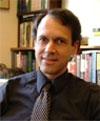|
|
Who are we? English and Comparative Literature Department, University of Columbia, Partner department Contact Person: Bruce Robbins, Director of Graduate Studies, Department of English and Comparative Literature, (212) 854-6463, bwr2001@columbia.edu Faculty Representatives: Rachel Adams, Joseph Bizup, David Damrosch (who is also on the Carnegie all-discipline advisory committee for the CID), Jean Howard, Sharon Marcus, Bruce Robbins, Clifford Siskin, Gayatri Spivak, Paul Strohm, Gauri Viswanathan Student Representatives: Hannah Gurman, Alex Smith
Department Home Page
Department CID Page
|
|
|
What do we want to accomplish in the CID? We joined the CID in the spirit of collaboration and forward-looking self-scrutiny, seeking to assess our current practices through both internal dialogue and exchange with representatives from participating programs; supplement and revise our doctoral program accordingly; and engage in a broader reflection on the status and future of the doctorate in literary studies.
|
|
|
More About Our Department Below are links to the Commonalities and Key Ideas PowerPoint presentations that we created in the summer of 2003.
Commonalities PowerPoint
|
|
|

Prof. David Damrosch, author of We Scholars
|
What have we done? In 2002-03, the faculty and student representative for Columbia English Department met some half-dozen times. For the first open meeting, held in the spring 2003, the following materials formed a basis of discussion: David Damrosch, "The Culture of Graduate Education," from We Scholars: Changing the Culture of the University Andrew Delbanco, "What Should PhD Mean?" from PMLA vol. 115.5, "Conference on the Future of Doctoral Education" Bruce Robbins, "Pretend What You Like: Literature Under Construction," from The Question of Literature: The Place of the Literary in Contemporary Theory, ed. Liz Beaumont Bissell Edward W. Said, "Globalizing Literary Study," PMLA 116.1 Clifford Siskin, "What We Remember" and "How We Forget," from The Work of Writing: Literature and Social Change in Britain, 1700-1830 In 2003-04, the committee met every two weeks through the year. In the spring of 2004, they completed the document that assesses the strengths and weaknesses of the Doctoral Program and proposes revisions accordingly. That document was disseminated to the graduate student body and a meeting was held to discuss the assessment and proposed changes. Graduate students voiced unanimous praise for the efforts that went into the assessment, agreement with the findings of the report, and support for the proposed changes.
|
|
|
|
What are we doing? In 2004-05, we are implementing the programmatic reforms proposed and adopted in Spring 2004, the highlights of which include a reconceptualization of the orals examination with a greater emphasis on teaching; a more systematic structure for dissertation advising; and the option for second-year students to teach discussion sections of larger lecture courses in literature. We are also planning to develop a systematized exit interview to measure and assess attrition. In addition to these nuts-and-bolts measures, we are continuing and intensifying the dialogue on the status and future of the doctoral degree in literature. To this end, we will be holding a series of talks featuring distinguished guest speakers. We plan to hold follow-up sessions to these events, where we can debrief and exchange perspectives on the state of graduate literary studies at large, and with particular attention to the ongoing evolution of our own department within this larger framework. The first event of the series will be on November 16 and will feature John Guillory. Looking ahead, we hope to use the discussion from this series to frame the basis of a collaborative essay on our vision of graduate studies in literature for the twenty-first century.
|
|
|